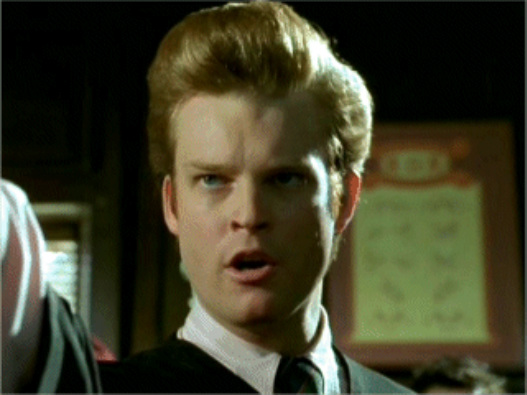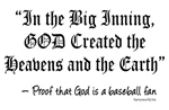 Actor Brad Beyer portrays Kirby Higbe in the movie "42"
Actor Brad Beyer portrays Kirby Higbe in the movie "42" Imagine if a statement like that was made now a days. We saw the fallout of Los Angeles Clippers owner Donald Sterling and the truth that society has changed for the better in representing equal rights for all. While it does not always work out that way, the consensus is that those who make racist comments or engage in racist actions are the ones who are now the minority. The reaction of all races and credence's to Sterling as well as Don Imus' statements years ago about the Rutgers women's basketball program are proof that we have come a long way to the treatment to African Americans in the 1940s.
Some may feel we have not come far enough. Their opinion is on the record and they have the right to feel that way. A conclusion can be made that the way most were treated back then simply should have not happened. And while that is true, the past cannot be re-written. There is really no explanation that can be made that can justify the treatments of African Americans in that time. Absolutely none.
In 1947, four Brooklyn Dodgers players started a petition stating that they would refuse to play with a black ballplayer. Walker takes all the headlines, but Bobby Bragan, Carl Furillo and Kirby Higbe were equally adamant about their views. Branch Rickey made it clear that Jackie Robinson would be playing for the Brooklyn Dodgers in 1947 and any player who refused to play with an African American player would be traded. Furillo quickly changed his mind and after it was made clear how serious Rickey was- both Bragan and Walker eventually withdrew their protests.
But RHP Kirby Higbe never did. Higbe was from South Carolina and defined what a racist white man was. He would brag about how strong his arm was and would be the first to say he built his arm strength by throwing rocks at blacks. Yet this never gets brought up. In fact, when Higbe said that he would not change his views, he was traded by RIckey to the Pittsburgh Pirates with three other players (one of whom was future MLB manager Gene Mauch) in exchange for infielder Al Gionfriddo. There is no evidence that Mauch or the other two players shared Higbe's views. While Walker was clearly racist, Higbe is not remembered in the same sense as Dixie Walker was. To me, the fact that he would rather take a trade than play with a black man makes him worse in that sense.
Similar to Walker, Higbe had some success early on in his career. After starting his career off with the Chicago Cubs and playing for the Philadelphia Phillies, he was traded to the Brooklyn Dodgers prior to the 1941 season. Despite having a losing career record and never winning more than 14 games in a season, Higbe took off, winning a career high 22 games for a Dodgers team that won the NL Pennant. He had the best success of his career with Brooklyn, winning 70 games and pitching to a 3.29 ERA and .648 winning percentage in his 4 plus seasons with them. Over his 12 year MLB career, Higbe won 118 games, had a 3.69 ERA and pitched to a .539 winning percentage. In fact, his record with the Cubs, Phillies, Pirates and Giants was 48-63. His time in Brooklyn included missing two full seasons to military service in the US Army (like most other players at that time did).
You can say that Higbe was a good pitcher; his fastball was compared to that of Bob Feller in the late 1930s and early 1940s. But even the fact that he found religion later in his life does not excuse him for being the way he was. Perhaps his parents are the ones who taught him his values, but it still does not make it right. Kirby Higbe deserves to be the poster child for racism in MLB in 1947. Surely others deserve it as well, mainly Walker and Phillies player/manager Ben Chapman, but Higbe wore racism and bigotry on his sleeve and in his heart. According to today's standards (and any human being's standards of the 1940s), that is not and should never have been acceptable. The greatest sign that society has done its job fighting against racism is the fact that you will be pressed to find a person who openly agrees with Donald Sterling's views. And if he does, he is afraid to say it because he will likely be standing alone.

 RSS Feed
RSS Feed
